As the United Kingdom is leaving the European Union all eyes are on the imminent economic effects and future trade negotiations. How the British people feel about the state of their country at this defining moment of their political history has received less attention. In this eupinions brief, we examine how British citizens evaluate the state of their national democracy and the direction of their home country. We also ask what they expect for their personal lives.
As the UK is leaving the European Union all eyes are on the eminent economic effects and future trade negotiations. To find out how the British people feel about the state of their country at this defining moment of their political history has received less attention. In this eupinions brief we examine how the British evaluate the state of their own country and their personal situation using our eupinions trends tracking data.
With our eupinions trends, we capture fundamentals of political and personal life by questioning European citizens every three month since 2015. For this eupinions brief we analyse four questions over time and compare British responses to those of their continental neighbours.
The four questions we use are:
- Think about your country in general. Would you say things are moving in the right direction?
- How satisfied are you with the way democracy works in your country?
- In general, what is you personal outlook on the future?
- How has your personal economic situation changed in the last two years?
In a nutshell, we see that even though a considerable amount of British citizens have lost faith in the state of their country, they remain quite positive about their personal situation.
When asked to evaluate the direction of their country in July 2015, see Figure 1, 44 per cent of the British claimed to be satisfied with it. This share has dropped by 17 percent since then. In December 2019, only 27 per cent of British respondents stated that their country is moving in the right direction.
In general, Europeans are not very positive about the state of their country. Yet, what is quite remarkable is that in 2015 the Brits were among those who were positive about their country, by 2019 they are among the least satisfied. In 2019, British respondents are on a similar level as the French and Spanish, only to be topped by the notoriously dissatisfied Italians. While British respondents clearly became more negative about the state of their country, within the EU as a whole the level of satisfaction has not changed considerably since 2015.
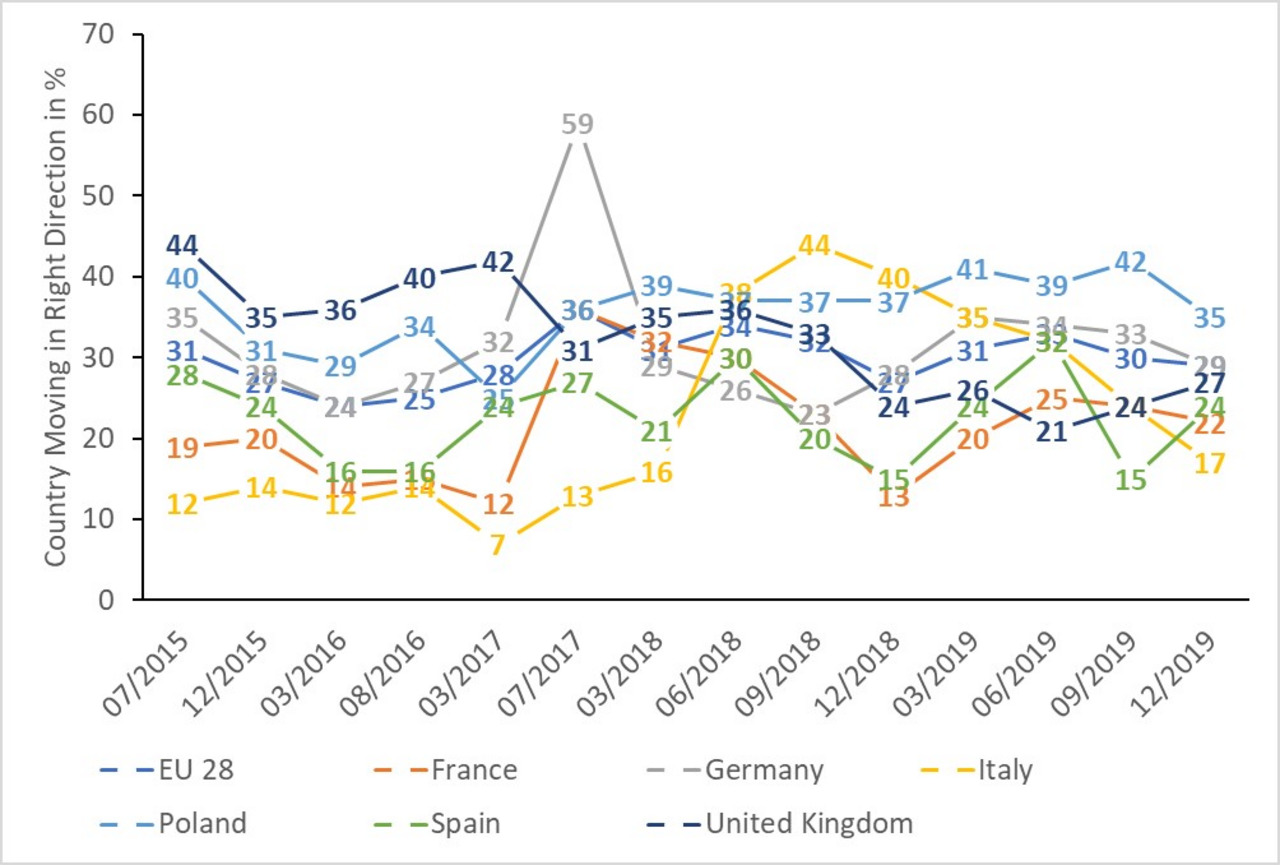
Figure 1 - Satisfaction with the direction of one’s country, 2015-2019
When asked about the way democracy works in their country, see Figure 2, a similar picture emerges. We first asked this question in March 2016. Back then, 56 per cent of British citizens claimed to be satisfied with the way democracy works in the UK. By December 2019, only 43 per cent still held this opinion. A major drop in satisfaction occurred in the last 18 months.
Satisfaction with democracy actually went up in Britain until the summer of 2018. Yet, since then satisfaction with the way democracy works in the UK has declined: from 62 per cent in June 2018, to 43 per cent at the end of 2019. In the EU as a whole, satisfaction with democracy hoovers around 50 per cent. While Italians are particularly dissatisfied with their democracy (only 27 per cent are satisfied), Germans are the most satisfied with their democracy (57 per cent).
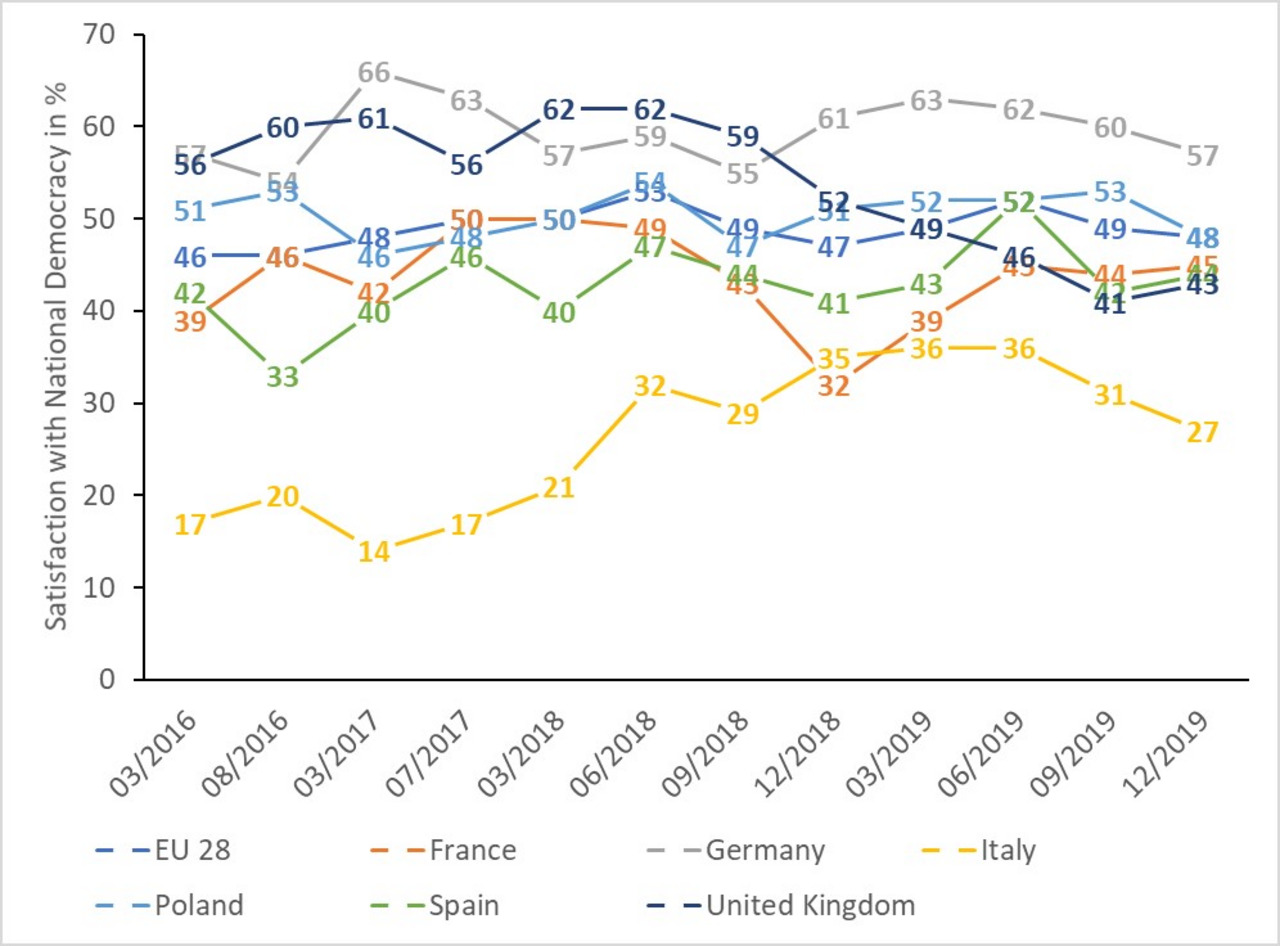
Figure 2 - Satisfaction with national democracy, 2016-2019
Interestingly, a different picture emerges when respondents are asked about their personal lives, see Figure 3. In 2015, 59 per cent of British respondents claimed to have a positive outlook on their personal future. In the following years this number actually rose as high as 75 per cent in September 2018, while recently declining again to 54 per cent in December 2019. Only the French and Italians have a less positive outlook on their personal lives in December 2019. In the EU as a whole, 58 per cent had a positive outlook on their personal future in 2015. This level of optimism also rose to 75 per cent by September 2018 and is back to 58 per cent in December 2019.
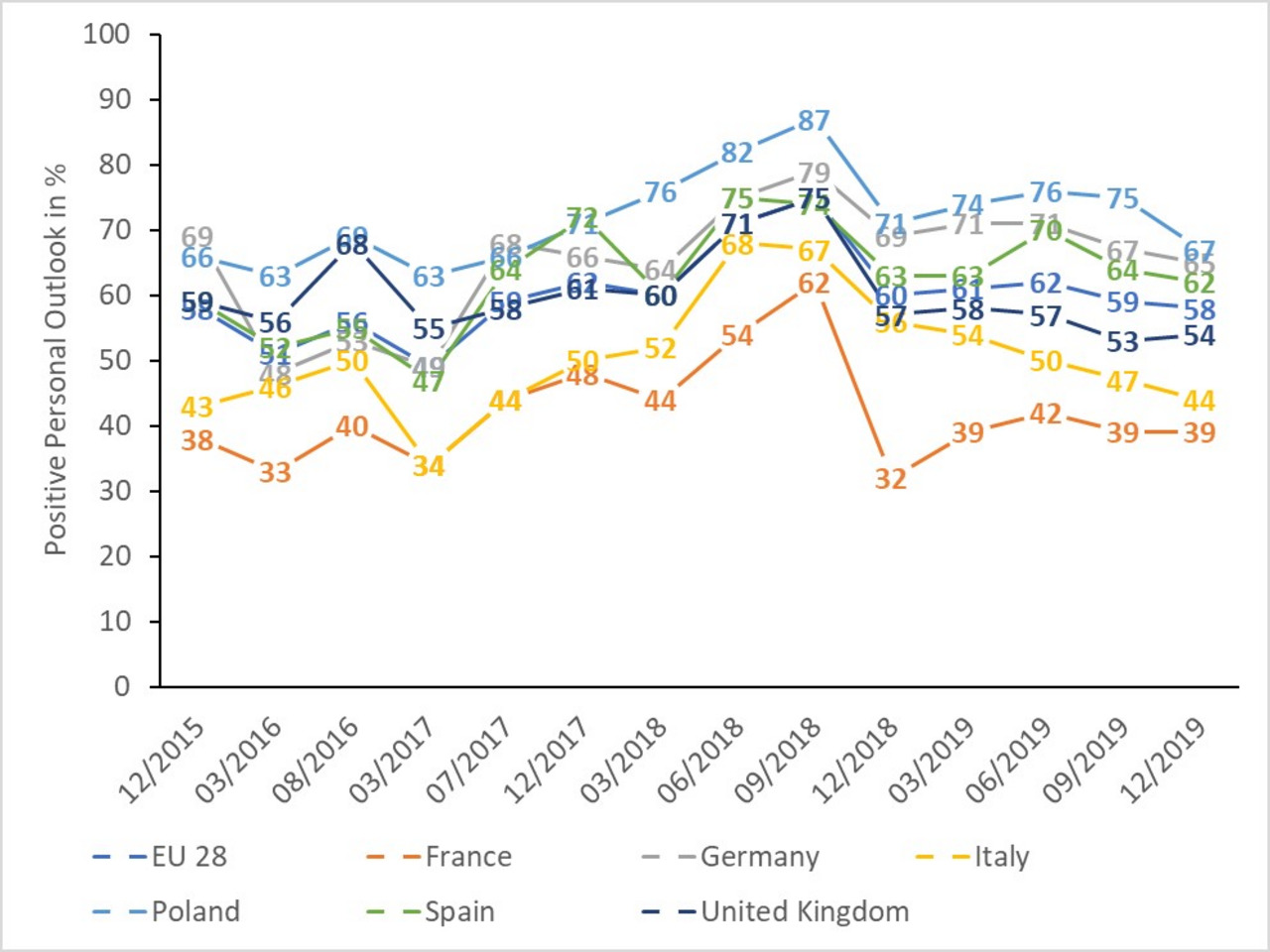
Figure 3 - Outlook on personal future, 2015-2019
We see a similar pattern when people are asked how their personal economic situation has evolved over the past two years, see Figures 4a through 4c. We started to ask this question in March 2016. Back then, 32 per cent of Brits claimed it improved, 33 per cent of Brits said it had worsened, and 35 per cent saw no change in their personal economics over the last 2 years. By mid 2018, a significant amount of British people were more positive about their personal economic situation, only to become more negative again in 2019. Only 28 per cent saw an improvement, 33 per cent a worsening, and 39 per cent no change.
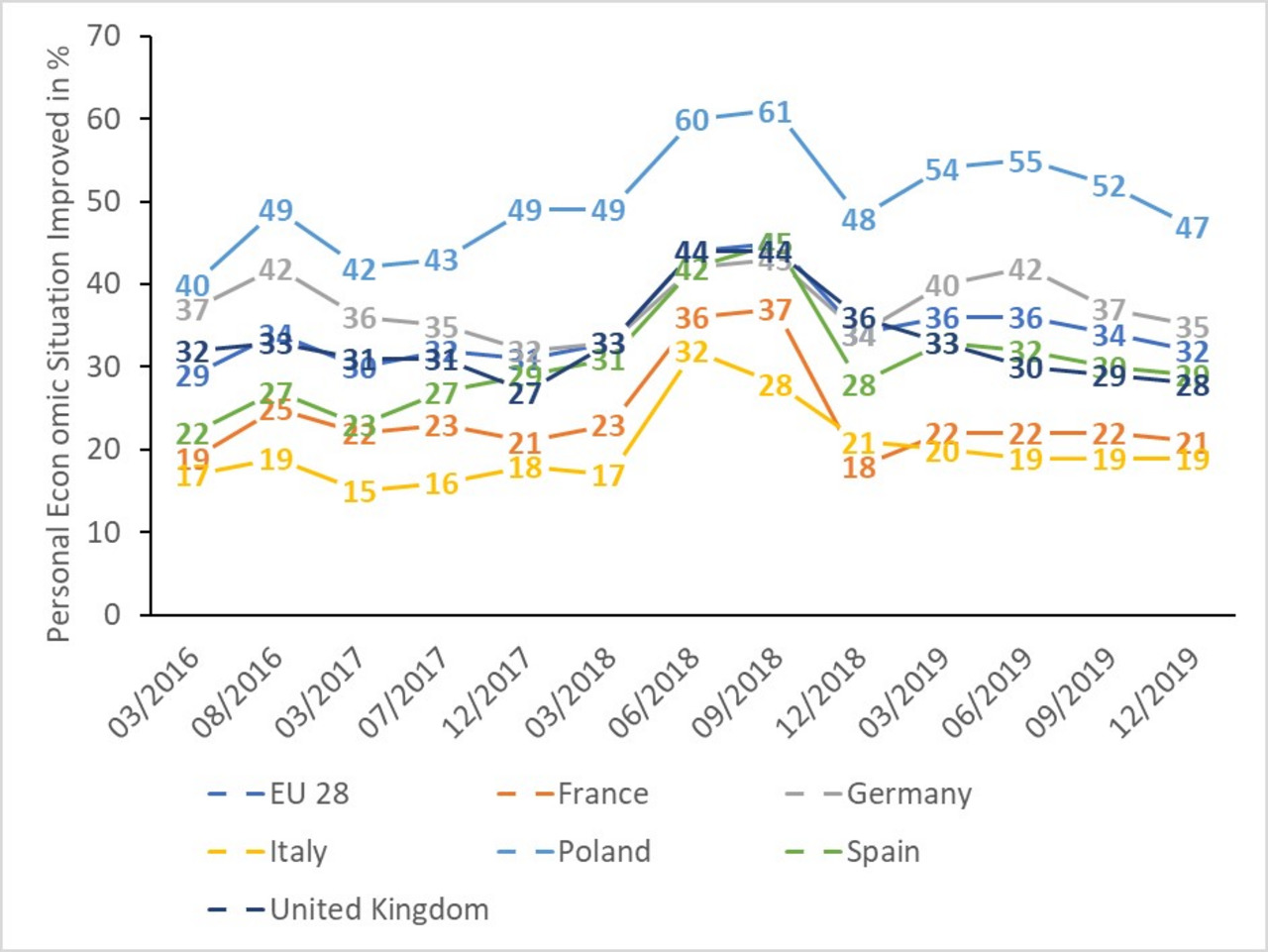
Figure 4a - Personal economic situation improved, 2016-2019
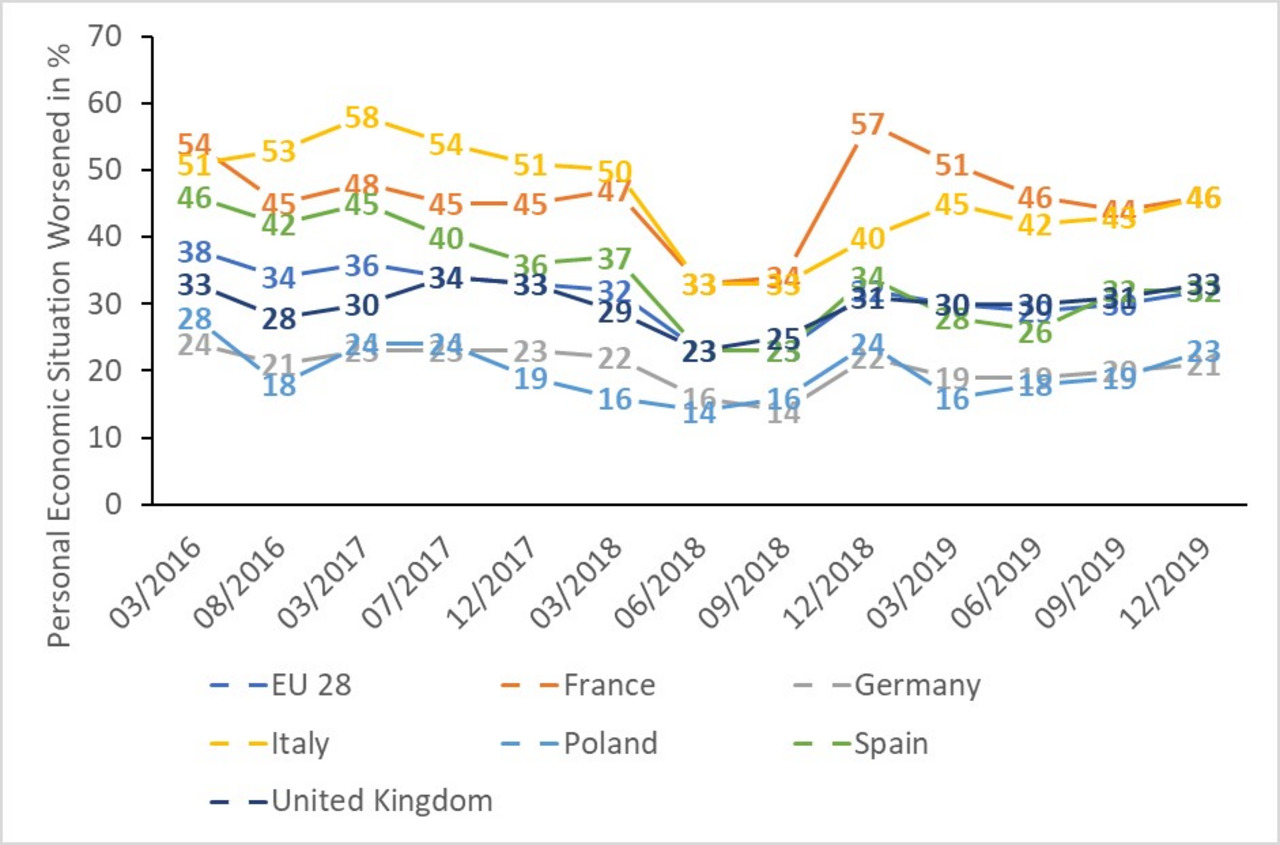
Figure 4b - Personal economic situation worsened, 2016-2019?
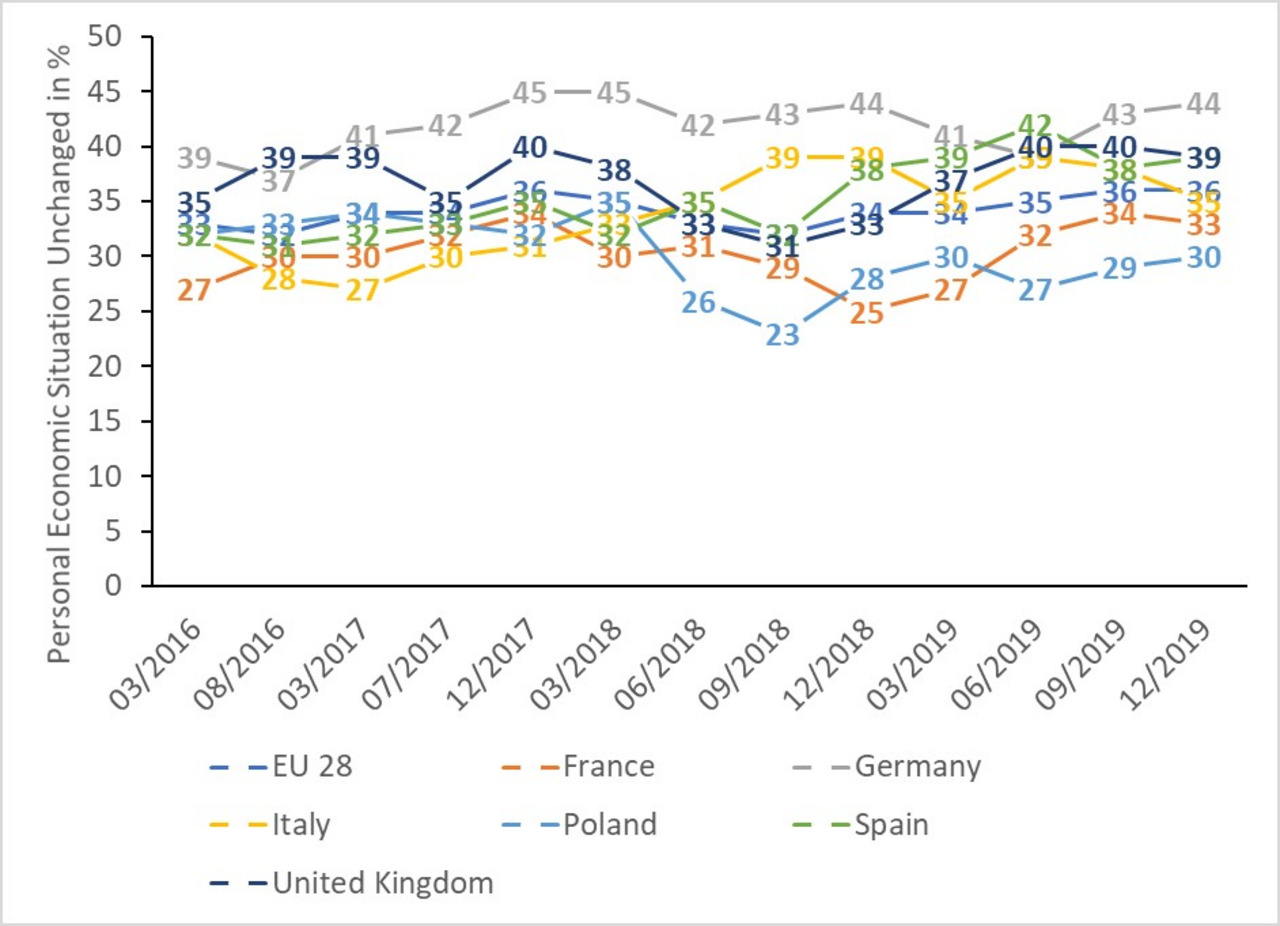
Figure 4c - : Personal economic situation remained the same, 2016-2019
The effects of Brexit have yet to fully materialise. Thus far, it has mostly been about ongoing debates and infighting in Westminster. The economic and societal effects have been postponed as Brexit has not yet happened. When the Brexit consequences become visible and people’s perception of their personal situation becomes gloomier, things might get though for the new British government.
Method
The samples with a size of n > 10.000 were drawn by Dalia Research between July 2015 and December 2019 across all 28 EU Member States, taking into account current population distributions with regard to age (14-65 years), gender and region/country. In order to obtain census representative results, the data were weighted based upon the most recent Eurostat statistics. Calculated for a sample of this size and considering the design-effect, the margin of error would be +/-1.1 % at a confidence level of 95 %.


